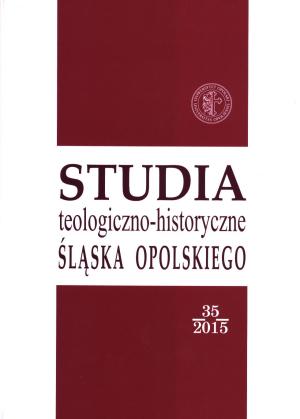Wpływ hellenizmu na trynitologię
Impact of Hellenism on trinitology
Author(s): Piotr LiszkaSubject(s): Christian Theology and Religion, Theology and Religion
Published by: Uniwersytet Opolski
Keywords: Hellenism; trinitology; Trinity; Monarchianism
Summary/Abstract: Hellenism has significantly impacted trinitology. Hellenism mixed all notions and had trinitology regard Divine Persons merely in a symbolic way. Instead of the Trinity there was a fuzzy notion of the Absolute, a kind of super cosmic might. That would mean doing away with Christianity.The statement “God is a person” is less dressed up in this respect, revealing the rejection of the Christian faith. Sure enough, the three Divine Persons share some personal features, together, as a unity, but the Trinity is not a person but three persons. Hellenism and the Old Testament describe merely God’s fatherhood in relation to man. In the Christian faith it is the first person of the Trinity who is the Father in the divine dimension, relating not only to man but to the other Persons of the Trinity. In the run-up to the Millennium, in the God-the-Father Year, generally no mention was made of God the Father, but of Fatherhood. Hardly anybody spoke of the fatherhood in relation to Jesus as expressed in the New Testament in terms of its having the highest, divine dimension; this alone describes fatherhood as the property of God the Father in himself. First one has to believe in the divinity of the person of Jesus Christ, and only then discuss the relationship that holds within the Trinity. The impact of Hellenism on Christianity continues, showing itself in a variety of ways, in theology, in the life of individuals and societies.
Journal: Studia Teologiczno-Historyczne Śląska Opolskiego
- Issue Year: 35/2015
- Issue No: _
- Page Range: 83-98
- Page Count: 16
- Language: Polish

